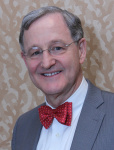The rapid progress in genetic testing has been gratifying because it provides the efficient discovery of the genetic basis of many familial clusters of cancer—specifically gastrointestinal cancer for the purposes of this lecture. However, we are a long way from a complete understanding of which genes confer what degree of cancer risk.
This lecture will introduce the main problems, which are how to deal with variants of uncertain significance, how to deal with unexpected genetic results, the failure to find a genetic explanation for what seems to be a genetic disease, and phenocopies.
A substantial portion of the lecture will address the fact that CRC is actually a cluster of diseases in which every tumor is different at a genetic level, but many of the tumors can be placed into general pathogenetic categories (chromosomal instability - CIN, microsatellite instability – MSI, and CpG Island Methylator Phenotype - CIMP). There will be a detailed discussion of the somatic mutations in CRCs, both in terms of the general number and types of mutations. An important point is that cancers are all caused by mutations, but the sequence variations detected in a tumor can be the drivers of neoplastic cellular behavior or alternatively, innocent bystanders or passengers. The techniques used to categorize CRCs into common classes include testing for MSI and immunohistochemistry, which provides some insight into the mechanisms driving the tumor. The actual target mutations that are driving CRCs with MSI will be discussed. Finally, some challenges in characterizing or classifying mutations will be described, including the problem of innocent sequence variants linked to the real but possibly undetected germline mutation, and the vexing issue of phenocopies.

Only the live session qualifies for CEUs but when possible, we host the recordings on our website and NSGC recommends participants to use their personal email instead of work email addresses to ensure they receive their CEU certificates.

Ambry Genetics is approved as a provider for continuing education program by NSGC and ASCLS P.A.C.E ® Program.

